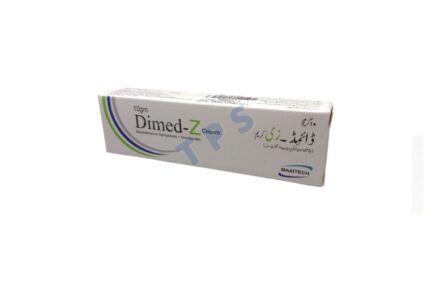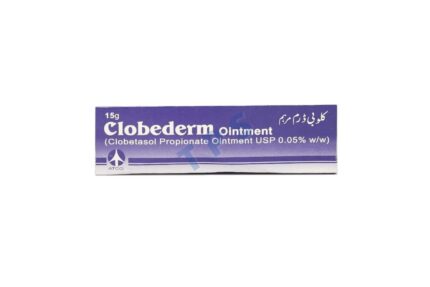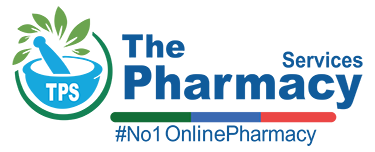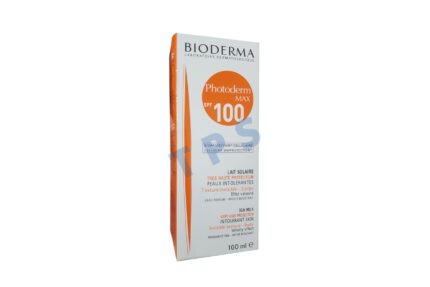

Cutivate-M Ointment 10gm
₨ 420 Original price was: ₨ 420.₨ 399Current price is: ₨ 399.
Cutivate-M Ointment 10gm Indications
Cutivate-M Ointment 10gm is primarily indicated in conditions like Allergic rhinitis, Asthma, Atopic eczema, Contact sensitivity reactions, Dermatitis, Discoid eczema, Discoid lupus erythematosus, Eczema, Infantile eczema, Neurodermatoses, Parennial rhinitis, Perennial rhinitis, Psoriasis, Purigo nodularis, Seborrheic dermatitis, and can also be given in adjunctive therapy as an alternative drug of choice in Generalised erythroderma, Insect bite reactions, Liver transplant.
Contraindication
Cutivate-M Ointment 10gm is contraindicated in conditions like Acne vulgaris, Rosacea,Perioral dermatitis, Hypersensitivity,Primary cutaneous viral infection,Perianal and genital pruritis.
Side Effects
The severe or irreversible adverse effects of Cutivate-M Ointment 10gm, which give rise to further complications include Glaucoma, Cataract, Growth retardation, Adrenocortical suppression, Decrease in bone mineral density. The symptomatic adverse reactions produced by Cutivate-M Ointment 10gm are more or less tolerable and if they become severe, they can be treated symptomatically, these include Pruritus, Dysphonia, Allergic contact dermatitis, Cough, Oral candidiasis, Local burning, Hyperpigmentation, Hypertrichosis, Vocal cord myopathy, Throat irritation, Superficial blood vessels dilatation, Superficial blood vessels thinning, Secondary dermatitis, Hypercortisolism.
Warnings
It should be used with caution in patients with active tuberculosis infection of respiratory tract or in untreated fungal, bacterial or systemic viral infections. Corticosteroids should only be used systemically with great caution in the presence of congestive heart failure (CHF), recent myocardial infraction (MI), hypertension, diabetes mellitus, epilepsy, glaucoma, hypothyroidism, liver failure, osteoporosis, peptic ulceration or renal impairment. Children may be at increase risk of some adverse effects, corticosteroid causes growth retardation and prolonged use is rarely justified. Live vaccine should not be given to patients receiving high dose systemic corticosteroid therapy nor for atleast 3 months afterwards, killed vaccine or toxoids may be given, although the response may be attenuated. During prolong treatment with corticosteroids, patients should be examined regularly, sodium intake may need to be reduced and calcium and potassium supplement may be necessary. Patient should carry cards given full details of their corticosteroid therapy. Avoid use during pregnancy. Use nasal steroids with caution until healing has occurred. Care should be taken when using corticosteroid topically to ensure the amount applied is the inimum that provides therapeutic benefit. When applied to eyelids, care is needed to ensure that the preparation does not enter the eye so as to avoid the risk of local irritation or gluacoma. Appropriate antimicrobial therapy should be used whenever treating inflammatory lesions which have become infected. Any spread of infection requires withdrawal of topical corticosteroid therapy and systemic administration of antimicrobial agents.



Reviews
There are no reviews yet.